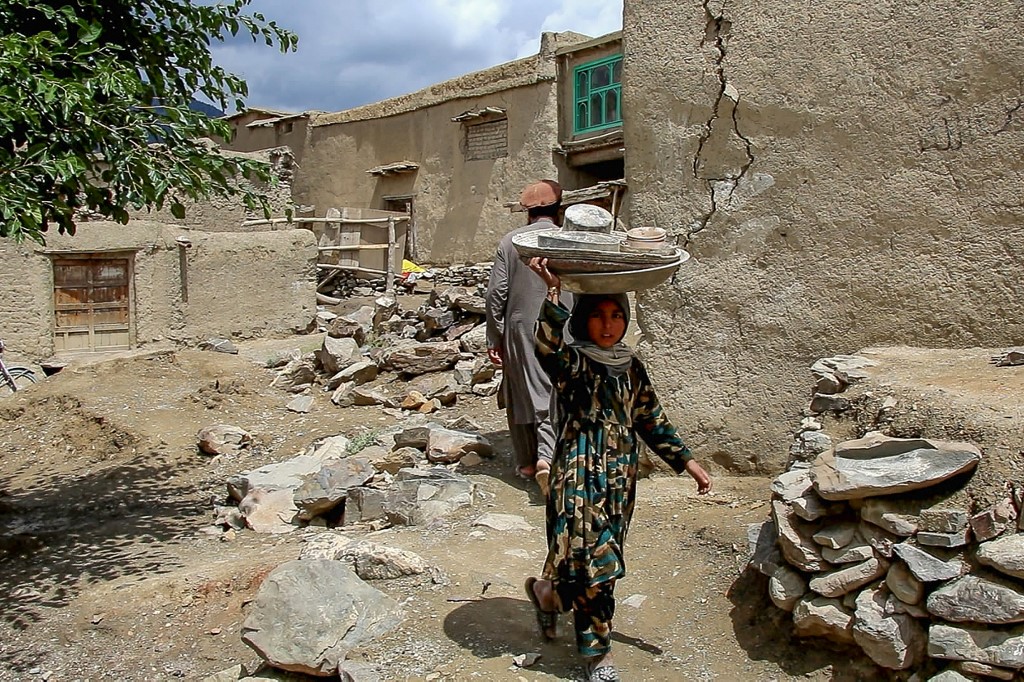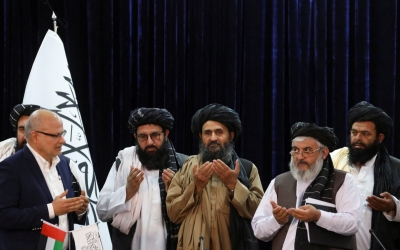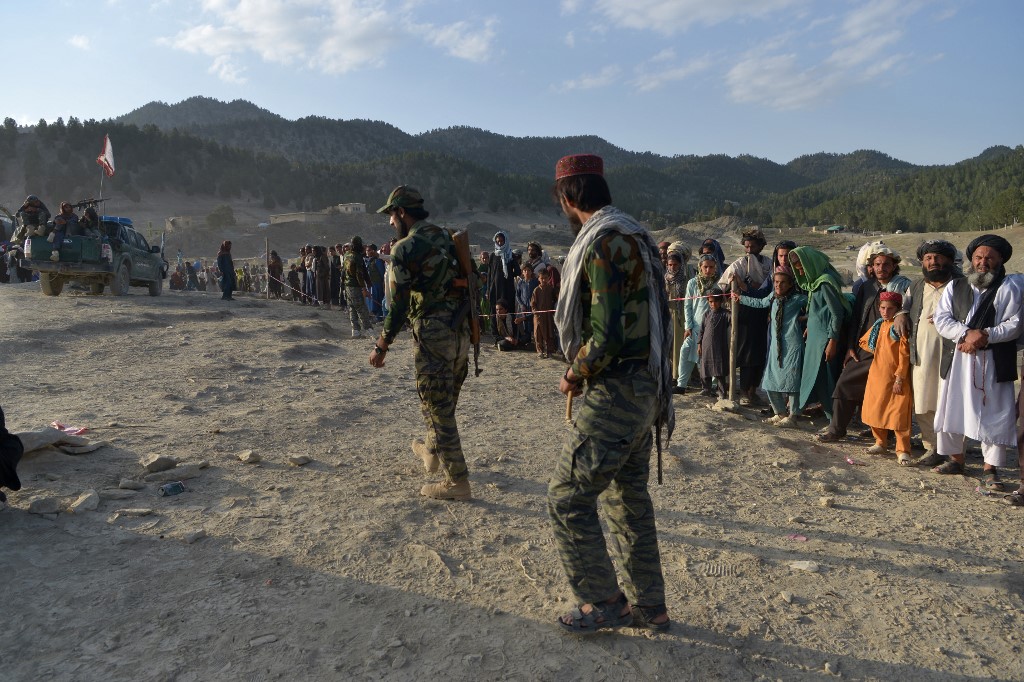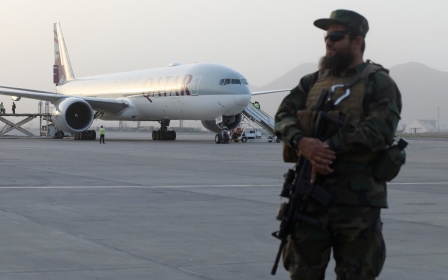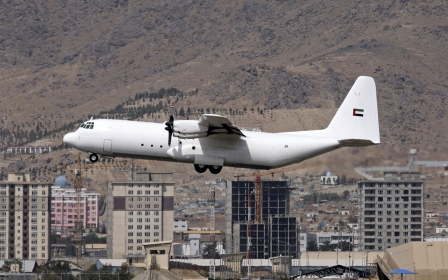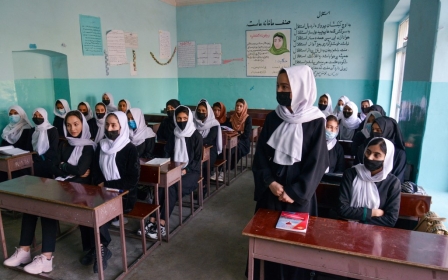Afghanistan sees aid pour in from across Middle East following earthquake
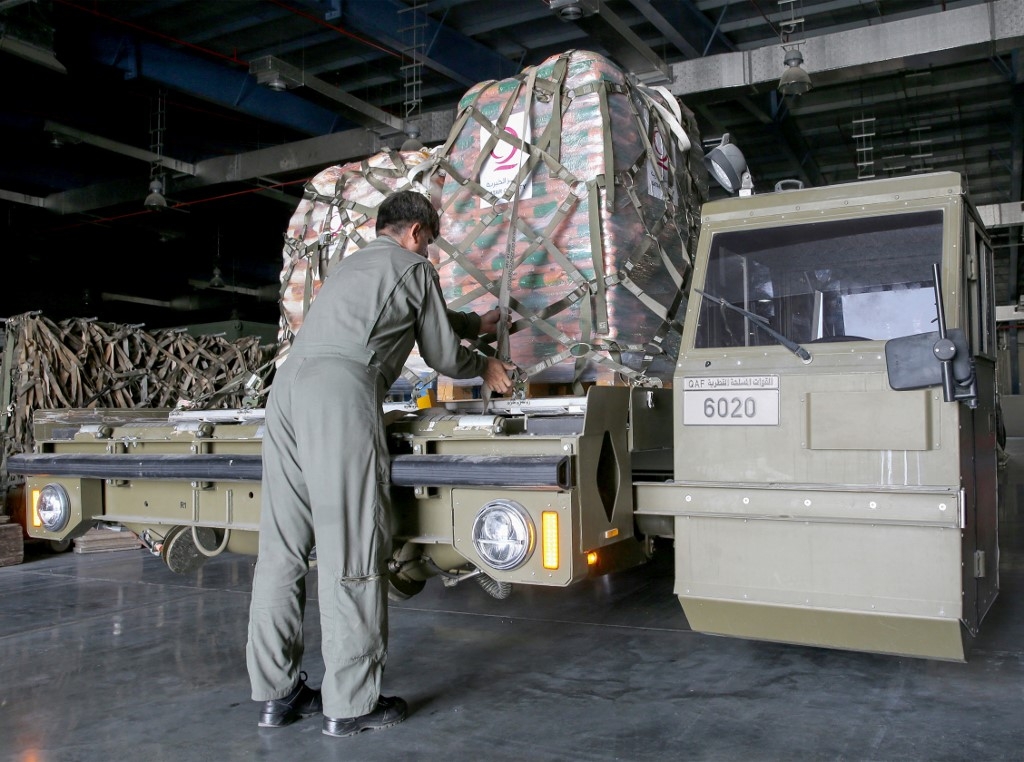
On Saturday afternoon, back-to-back aid flights from the United Arab Emirates and Qatar landed at the virtually abandoned Khost Airport in southeastern Afghanistan.
The flights were part of an international response to a 5.9-magnitude earthquake last week that killed more than 1,100 people in the provinces of Khost and Paktika. The deliveries from the on-again, off-again rivals were placed on pallets next to each other on the airport’s tarmac.
This aid from Abu Dhabi and Doha - mostly basic foodstuffs - was much needed for people in some of the most remote and undeveloped parts of Afghanistan.
The deliveries were also a test of the Taliban’s ability to muster international support at a time when the economy of its Islamic emirate is seriously hampered by ongoing sanctions, asset withholding and aid cutbacks.
Help from unexpected places
Some of the assistance came from expected countries - Iran, Turkey, Qatar and Pakistan - while others came from much more surprising sources, like India and the UAE.
Abu Dhabi’s first aid delivery arrived on Friday. According to Emirati media, the Emirates Red Crescent and the Khalifa bin Zayed Al Nahyan Foundation worked under the direction of the Ministry of Foreign Affairs to deliver at least 30 tonnes of mostly food assistance.
Mohammed bin Zayed, the UAE’s president, issued an order for an air bridge to be created to assist victims of the earthquake.
Masood Azizi, Afghanistan’s consul general in Dubai, has been trying to encourage Afghan businesspeople in the UAE to contribute to aid efforts, even from afar. “It’s very important for us all to assist our fellow Afghans, especially in this poor economic situation,” he told Middle East Eye.
Azizi added that many UAE-based entrepreneurs also have businesses in Afghanistan, so he is encouraging them to direct some of their resources towards helping people who lost everything in the earthquake and the several aftershocks that came in the days that followed.
Azizi expressed his gratitude to the UAE for its continued support of the Afghan people, saying the earthquake assistance was an example of how “the UAE has been a very generous to support us all of these years.”
The Afghan consul general also organised two special prayer gatherings at the consulate in Dubai on Friday and Saturday. He gathered members of the local Afghan community and continued to impress upon Afghan investors the importance of assisting their people in this time of great need.
Qatar and Turkey at the forefront
Qatar’s initial delivery arrived the following day, containing 13 tonnes of goods. Those goods, brought by the Qatar Charity, were soon placed right next to the previous shipment from the Emirates.
Taliban officials greeted Qatari representatives on their arrival in Afghanistan. Part of the delegation is staying in the country in order to oversee what they say will be a week-long aid delivery.
Turkey, which has been a long-time ally of Doha’s and has recently started to rebuild ties with Abu Dhabi, has also been part of the aid efforts. In the immediate aftermath of the earthquake, the United Nations suggested that Ankara lead the search and rescue efforts.
The UN said Turkey, which has dealt with several deadly earthquakes of its own, was “best positioned” to lead the search and rescue efforts. Ankara said it would send the Turkish Red Crescent to provide any possible assistance to the victims.
The day after the earthquake, Turkish aid groups could already be seen at the Army Corps of Paktia province (which borders the two most devastated provinces), where they were loading aid packages onto military helicopters.
Tehran and the Taliban
In the five days since the earthquake, Iran has sent at least four shipments of aid. So far, Tehran’s assistance has comprised of medicine, food, clothing, tents (for temporary shelter) and other basic supplies.
Iran, along with the rest of the world, has yet to recognise the Taliban as Afghanistan’s official government, saying the group must create an inclusive administration to be seen as legitimate.
Tehran has a complicated history with the Taliban. While it has often been at odds with the group, Iran has also been forced to refute accusations that it aided and abetted the Taliban when it was an armed opposition movement fighting the then western-backed Afghan government.
Following the earthquake, the Iranian Red Crescent Society (IRCS) announced a programme allowing people to deposit cash contributions to the organisation’s bank accounts or to use a mobile payment code to help the victims.
This is especially important as international banking restrictions put in place after the Taliban returned to power last August have made sending money to the country much more difficult for Afghans abroad.
The fact that aid deliveries from Qatar and the UAE arrived within hours of each other has been seen as another example of the warming, yet still knotty, relations between the Gulf states.
Abu Dhabi airport deal
Last month, Abu Dhabi surprised analysts and experts by landing a contract to handle the ground operations of Afghanistan’s four major international airports.
The agreement came after nearly nine months of stop-start talks between the Taliban government, Qatar and Turkey, that Doha and Ankara were hoping would lead to them taking over responsibility for Afghanistan’s airports.
Instead, Abu Dhabi secured an agreement for a major portion of airport services.
Azizi told MEE that what matters most now is that countries like the UAE are willing to help the Afghan people after yet another devastating natural disaster.
“We, as Afghans, won't forget those who support us in times of need,” he said.
Middle East Eye propose une couverture et une analyse indépendantes et incomparables du Moyen-Orient, de l’Afrique du Nord et d’autres régions du monde. Pour en savoir plus sur la reprise de ce contenu et les frais qui s’appliquent, veuillez remplir ce formulaire [en anglais]. Pour en savoir plus sur MEE, cliquez ici [en anglais].


